The role as world reserve currency is something no financial hegemon in history has willingly surrendered. It took two world wars for the City of London and Bank of England to reluctantly concede hegemony of the Pound Sterling to the Dollar. As Henry Kissinger is said to have remarked decades ago, “If you control the money, you can control the entire world.” Whether or not Kissinger ever said that publicly, he and his patron, David Rockefeller, certainly believed it. Now, with US government debt shooting past $19 trillion and the true state of the American economy and its infrastructure at its worst since the Great Depression, with most Americans living on the brink of financial disaster, the brilliant financial engineers of Wall Street and Washington have once again come up with a scheme to prolong the role of Dollar as King in the world economy.
The recent Panama Papers revelations by a select group of Western mainstream media including the New York Times, BBC and Süddeutsche Zeitung, were notable as a brazen attempt to attack foreign leaders such as Russia’s Vladimir Putin and China’s Xi Jinping for alleged corruption. Notably, the leaked files of the Panama law firm, Mossack Fonseca, so far have failed to leak even one significant name of a US citizen hiding money in offshore accounts of the Panama facilitators.
While the world’s eyes were on the identities of alleged offshore money holders, they failed to consider the longer-term consequence of the huge revelations. The one country so far to benefit from the Panama Papers revelations is the country that is rapidly becoming the new “Panama” or better, the new Switzerland, namely the United States of America, the initiator of attacks on other hot money havens offshore over the past two decades.
Golden Dollar Era
Over the past seventy two years ever since the US and select wartime allied governments met in Bretton Woods, New Hampshire in 1944 to decide the shape of the postwar monetary order, the US dollar has reigned supreme in the world economy. By end of the War in 1945 the US Federal Reserve held the overwhelming bulk of world monetary gold.
 As war erupted in Europe in September 1939 with Hitler’s and Stalin’s dismemberment of Poland, European gold was flooding into the United States. In 1935 US official gold reserves had been valued at just over $9 billion. By 1940 after the onset of war in Europe, they had risen to $20 billion. As desperate European countries sought to finance their war effort, their gold went to the United States to purchase essential goods. By the time of the June 1944 convening of the international monetary conference at Bretton Woods, the United States controlled fully 70% of the world’s monetary gold, an impressive advantage. That 70% did not even include calculating the captured gold of the defeated Axis powers of Germany or Japan, where exact facts and data were buried in layers of deception and rumor.
As war erupted in Europe in September 1939 with Hitler’s and Stalin’s dismemberment of Poland, European gold was flooding into the United States. In 1935 US official gold reserves had been valued at just over $9 billion. By 1940 after the onset of war in Europe, they had risen to $20 billion. As desperate European countries sought to finance their war effort, their gold went to the United States to purchase essential goods. By the time of the June 1944 convening of the international monetary conference at Bretton Woods, the United States controlled fully 70% of the world’s monetary gold, an impressive advantage. That 70% did not even include calculating the captured gold of the defeated Axis powers of Germany or Japan, where exact facts and data were buried in layers of deception and rumor.
For the following quarter century, the gold-backed US dollar reigned supreme as the rest of the world, especially war-ravaged Western Europe, scrambled to find dollars to pay US imported goods to rebuild their industrial base. The dollar was literally “as good as good,” much as the Pound Sterling had been a century earlier.
Yet by the end of the 1960’s the dollar world had undergone significant change. The economies of France and especially of West Germany had emerged with a new state-of-the-art industrial base and was rapidly becoming an export power challenging American obsolescent industrial goods. The US industrial base had last undergone substantial modernization some three decades before. Europe and later Japan, were posing a competitive challenge to US industry. More alarming for Wall Street banks like David Rockefeller’s Chase Manhattan, Citibank or JPMorgan, as US trade dollar earnings of German companies like Mercedes, VW or BMW or Siemens were accumulating in the coffers of the German Bundesbank or Bank of France during the 1960’s an alarming change in policy emerged.
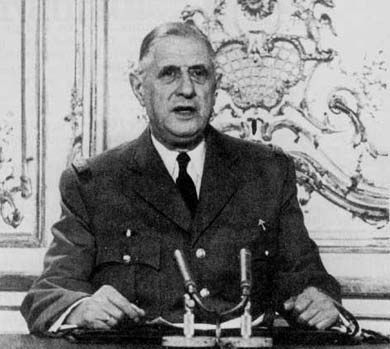 French President Charles de Gaulle, acting on advice of his conservative financial adviser, Jacques Rueff, ordered the Bank of France to begin to redeem its rapidly accumulating trade surplus dollars for gold, something then legal under the rules of Bretton Woods. The conservative German Bundesbank followed in demanding US gold for dollars. In 1968 in one of the first crude versions of their Color Revolutions, the CIA and US State Department toppled President de Gaulle in the events known as the May 1968 student revolt. Despite the replacement of de Gaulle by former Rothschild banker, Georges Pompidou, the foreign demand for Federal Reserve gold redemptions increased as Washington budget deficits to finance the ill-conceived Vietnam War exploded.
French President Charles de Gaulle, acting on advice of his conservative financial adviser, Jacques Rueff, ordered the Bank of France to begin to redeem its rapidly accumulating trade surplus dollars for gold, something then legal under the rules of Bretton Woods. The conservative German Bundesbank followed in demanding US gold for dollars. In 1968 in one of the first crude versions of their Color Revolutions, the CIA and US State Department toppled President de Gaulle in the events known as the May 1968 student revolt. Despite the replacement of de Gaulle by former Rothschild banker, Georges Pompidou, the foreign demand for Federal Reserve gold redemptions increased as Washington budget deficits to finance the ill-conceived Vietnam War exploded.
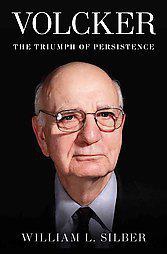 By August 1971, President Nixon was advised by his Assistant Treasury secretary, Paul Volcker, a former executive at Rockefeller’s Chase Manhattan Bank, to essentially tear up the Bretton Woods Treaty and declare the US dollar a free-floating paper no longer redeemable in gold. The Federal Reserve’s gold reserves over the previous several years had been drained by foreign central banks fearful of the import of US dollar inflation as Washington refused pleas to devalue the dollar to re-stabilize the system. Rueff and France were calling for a 100% dollar devaluation against the Franc or Deutschmark.
By August 1971, President Nixon was advised by his Assistant Treasury secretary, Paul Volcker, a former executive at Rockefeller’s Chase Manhattan Bank, to essentially tear up the Bretton Woods Treaty and declare the US dollar a free-floating paper no longer redeemable in gold. The Federal Reserve’s gold reserves over the previous several years had been drained by foreign central banks fearful of the import of US dollar inflation as Washington refused pleas to devalue the dollar to re-stabilize the system. Rueff and France were calling for a 100% dollar devaluation against the Franc or Deutschmark.
Petrodollar era is born
By 1973, in developments I describe in detail in my book, A Century of War, as well as in Myths, Lies & Oil Wars, Wall Street and the Federal Reserve “solved” the problem of a dollar in free-fall—it had devalued some 40% against the Franc, D-mark and Yen after August, 1971—by orchestrating, with the skillful and deceitful diplomacy of then-Secretary of State, Henry Kissinger, an OPEC oil price embargo following outbreak of the October, 1973 Yom Kippur War. By early 1974 the price of OPEC oil had been set some 400% above that of 1971. The dollar value soared against other major currencies as Germany, France and the rest of the oil-hungry world scrambled to find 400% more dollars to import their oil. Kissinger at the time wrote about “recycling petrodollars.” The dollar would be backed, not by gold, but by oil.
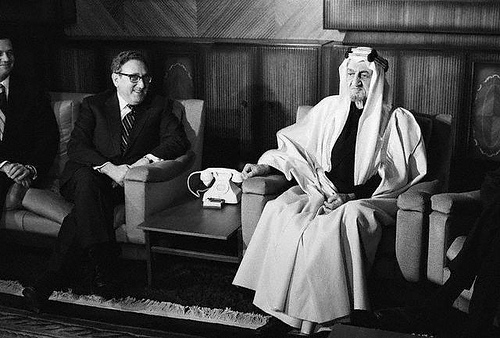
To be certain that the petrodollar system held, and that OPEC, led by Saudi Arabia, would never be tempted to sell for D-marks, Francs or Yen as those countries tried, Washington took special measures. On June 8 1974, US Secretary of State Henry Kissinger signed an agreement establishing a US-Saudi Arabian Joint Commission on Economic Cooperation. Its official mandate was co-operation in the field of finance.”
By December 1974 the US Treasury had signed an agreement in Riyadh with the Saudi Arabian Monetary Agency, whose mission was, “to establish a new relationship through the Federal Reserve Bank of New York with the (US) Treasury borrowing operation. Under this arrangement, SAMA will purchase new US Treasury securities with maturities of at least one year,” explained Assistant Secretary of the U.S. Treasury, Jack F. Bennett, later to become a director of Exxon. Wall Street banker, David Mulford of Credit Suisse-FirstBoston was sent by Washington to SAMA in to seal the deal.
Bennett’s memo was addressed to Secretary of State Kissinger, dated February 1975, explaining the arrangements agreed two months before. As part of the secret agreements between Washington and Riyadh negotiated by Bennett, Saudi Arabia, in return for generous US defense equipment purchases and guarantees of its military security, agreed that OPEC would accept only US dollars for their oil, not German Marks despite their clear value, not Japanese Yen nor French Francs or even Swiss Francs, but only American dollars.
That was the essence of the petrodollar system which over the past decade or more has been eroding as Russia, China, Iran and even the EU challenge the role of the dollar as reserve currency. Russia and China, in a defensive move have agreed to energy trade for oil and gas paid not in dollars but in own currencies. Iran recently announced it will accept only Euros for its oil. More and more the days of the dollar demise are being proclaimed.
A new Narco-dollar system?
Now, however, it appears the financial wizards of Wall Street and the US Treasury have come up with a new life-extension idea.
In what must be termed at least a clever attempt to solve the looming crisis of the dollar, a new role of the dollar is emerging from the rubble of the offshore banking crisis triggered by the suspicious hacking of the Panama Papers. The under-regulated United States is rapidly becoming the “new Switzerland” in attracting “hot money” which includes everything from narco dollars from the international drug traffic to hiding of funds offshore by corrupt politicians.
For the past decade or more the US Government and revenue agency have pressured discreet offshore banking centers from Switzerland to the Cayman Islands to British Virgin Islands and beyond allegedly to clamp down on US tax-evading citizens hiding money abroad from the IRS or terrorists moving money to finance Al Qaeda and the likes. But the US government itself has rigidly refused to abide by the new international money reporting rules it caused to be created.
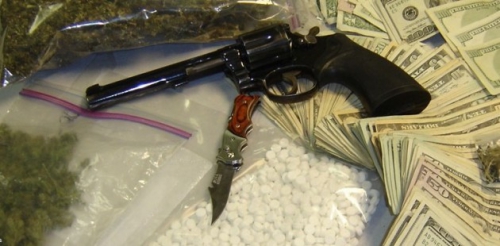
Now, according to a January report in the Bloomberg financial magazine, the result is that the United States itself, in places like Reno, Nevada or South Dakota or Wyoming, are fast becoming the “new Switzerland” hot or secret money havens.
Bloomberg quotes a Zurich attorney, Peter A. Cotorceanu, a lawyer at Anaford AG, “The USA, which has been so sanctimonious in its condemnation of Swiss banks, has become the banking secrecy jurisdiction du jour…That ‘giant sucking sound’ you hear? It is the sound of money rushing to the USA.”
The attraction of secrecy havens inside the US comes from the fact that a very strict money reporting standard set out by the Paris-Based OECD in 2014 has not been signed by four countries: Bahrain, Nauru, Vanuatu—and, guess who…the United States.
In the last months, taking advantage of the Washington hypocrisy, some of the world’s largest private banking managers including Rothschild Trust North America LLC. based in Reno, Nevada. Geneva-based Cisa Trust Co. SA, which advises wealthy Latin Americans, is applying to open in Pierre, South Dakota to “serve the needs of our foreign clients,” said John J. Ryan Jr., Cisa’s president.
Trident Trust Co., one of the world’s biggest providers of offshore trusts, moved dozens of accounts out of Switzerland, Grand Cayman, and other locales and into Sioux Falls, South Dakota in December, ahead of a January 1 disclosure deadline. Commenting on the new phenomenon, Andrew Penney of Rothschild & Co. stated that the US “is effectively the biggest tax haven in the world.”
Making the process even more positive for the dollar, a 2010 USA law, the Foreign Account Tax Compliance Act, or Fatca, requires financial firms to disclose foreign accounts held by US citizens and report them to the IRS or face steep penalties. With the US refusing to sign the OECD disclosure rules, US offshore dollars are also flooding back into Reno and other new US banking secrecy havens.
Further, to make other offshore banking centers unattractive, a law implemented in 2011 requires Panama-registered agents to provide client information when requested on all new incorporations, and the British Virgin Islands has adopted restrictions on due diligence. In an investors’ conference recently in San Francisco, Rothschild’s Penney stated in remarks cut from the published version of his remarks, that the US Government lacks “the resources to enforce foreign tax laws and has little appetite to do so.” ix
Now with one of the largest international offshore money facilitators, Panama’s Mossack Fonseca, admitting it is being forced to wind down, the way is clear to make the USA the new Switzerland or Panama. Drug cartels of the world are already clearly informed and a good share of the estimated $1.6 trillion of criminal funds annually are searching new safe havens in Reno and other US hot money havens. From a golden dollar to a petro dollar to now a narco dollar. It’s pretty pathetic for the country that was once the world’s leading industrial technology leader.
F. William Engdahl is strategic risk consultant and lecturer, he holds a degree in politics from Princeton University and is a best-selling author on oil and geopolitics, exclusively for the online magazine “New Eastern Outlook”
http://journal-neo.org/2016/05/09/from-golden-dollar-to-p...
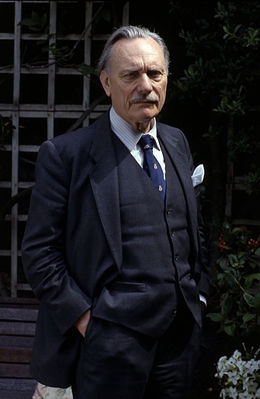 Phillips explique que depuis le discours d’Enoch Powell en 1968 qui valut à celui-ci sa mise à l’écart de la politique, tout le monde a retenu la leçon : « Adopter toutes les stratégies possibles pour ne pas parler de race, d’ethnicité (et plus tard de religion et de foi), sauf de manière anodine et plate. »
Phillips explique que depuis le discours d’Enoch Powell en 1968 qui valut à celui-ci sa mise à l’écart de la politique, tout le monde a retenu la leçon : « Adopter toutes les stratégies possibles pour ne pas parler de race, d’ethnicité (et plus tard de religion et de foi), sauf de manière anodine et plate. »


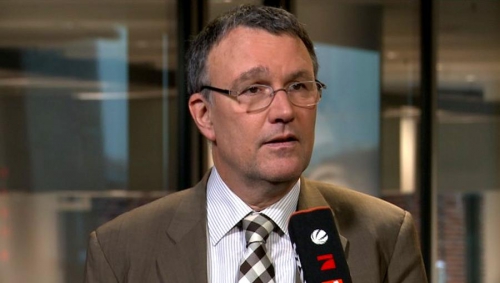
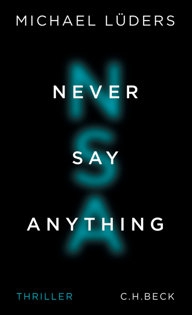 Dans son roman «Never say anything – NSA», Michael Lüders nous montre magistralement que nous aussi, nous vivons dans ce monde et que chacun d’entre nous porte une responsabilité envers l’histoire et les générations futures.
Dans son roman «Never say anything – NSA», Michael Lüders nous montre magistralement que nous aussi, nous vivons dans ce monde et que chacun d’entre nous porte une responsabilité envers l’histoire et les générations futures.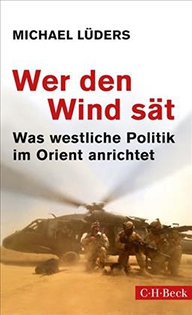 Michael Lüders, en tant que spécialiste du Proche-Orient présente ces informations spécifiques sous forme de roman. Ces faits n’auraient probablement jamais pu être publiés sous forme d’un travail journalistique. Il profite de ses connaissances en matière de style littéraire, ce qui permet au lecteur de s’identifier avec Sophie. Il ressent comme elle et souffre avec elle, surtout parce que Sophie reste fidèle à sa volonté et à son devoir journalistique de découvrir la vérité. Cela donne de l’espoir, quels que soient les abîmes bien réels relatés dans le roman: tant qu’il y aura des gens comme Sophie et d’autres qui lui viennent en aide dans les pires situations, le monde ne sera pas perdu. Cela nonobstant tous les raffinements des techniques de surveillance et d’espionnage utilisés à poursuivre Sophie pour la faire tomber et s’en débarrasser.
Michael Lüders, en tant que spécialiste du Proche-Orient présente ces informations spécifiques sous forme de roman. Ces faits n’auraient probablement jamais pu être publiés sous forme d’un travail journalistique. Il profite de ses connaissances en matière de style littéraire, ce qui permet au lecteur de s’identifier avec Sophie. Il ressent comme elle et souffre avec elle, surtout parce que Sophie reste fidèle à sa volonté et à son devoir journalistique de découvrir la vérité. Cela donne de l’espoir, quels que soient les abîmes bien réels relatés dans le roman: tant qu’il y aura des gens comme Sophie et d’autres qui lui viennent en aide dans les pires situations, le monde ne sera pas perdu. Cela nonobstant tous les raffinements des techniques de surveillance et d’espionnage utilisés à poursuivre Sophie pour la faire tomber et s’en débarrasser. 
 del.icio.us
del.icio.us
 Digg
Digg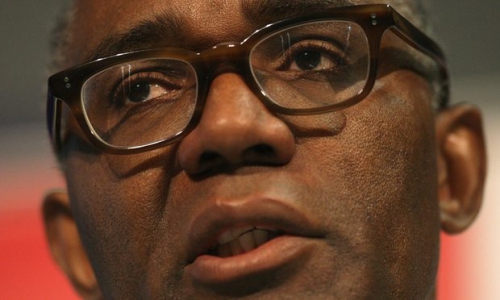

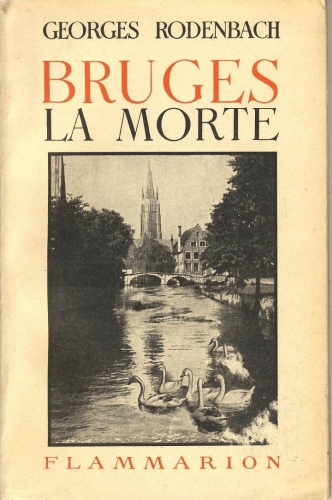 Auteur de huit recueils poétiques d’inspiration parnassienne, Rodenbach est surtout connu pour ses romans dont le style est aux antipodes du réalisme et du naturalisme. Trois personnages, une intrigue simple, une temporalité romanesque concentrée en un semestre, de novembre à mai : tels sont les ingrédients de Bruges-la-Morte.
Auteur de huit recueils poétiques d’inspiration parnassienne, Rodenbach est surtout connu pour ses romans dont le style est aux antipodes du réalisme et du naturalisme. Trois personnages, une intrigue simple, une temporalité romanesque concentrée en un semestre, de novembre à mai : tels sont les ingrédients de Bruges-la-Morte.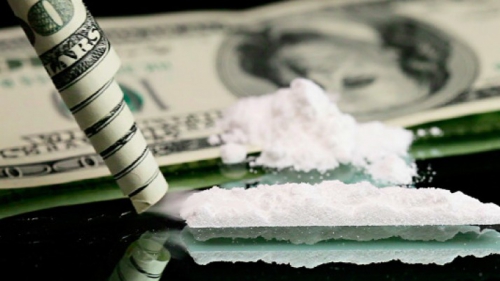
 As war erupted in Europe in September 1939 with Hitler’s and Stalin’s dismemberment of Poland, European gold was flooding into the United States. In 1935 US official gold reserves had been valued at just over $9 billion. By 1940 after the onset of war in Europe, they had risen to $20 billion. As desperate European countries sought to finance their war effort, their gold went to the United States to purchase essential goods. By the time of the June 1944 convening of the international monetary conference at Bretton Woods, the United States controlled fully 70% of the world’s monetary gold, an impressive advantage. That 70% did not even include calculating the captured gold of the defeated Axis powers of Germany or Japan, where exact facts and data were buried in layers of deception and rumor.
As war erupted in Europe in September 1939 with Hitler’s and Stalin’s dismemberment of Poland, European gold was flooding into the United States. In 1935 US official gold reserves had been valued at just over $9 billion. By 1940 after the onset of war in Europe, they had risen to $20 billion. As desperate European countries sought to finance their war effort, their gold went to the United States to purchase essential goods. By the time of the June 1944 convening of the international monetary conference at Bretton Woods, the United States controlled fully 70% of the world’s monetary gold, an impressive advantage. That 70% did not even include calculating the captured gold of the defeated Axis powers of Germany or Japan, where exact facts and data were buried in layers of deception and rumor. French President Charles de Gaulle, acting on advice of his conservative financial adviser, Jacques Rueff, ordered the Bank of France to begin to redeem its rapidly accumulating trade surplus dollars for gold, something then legal under the rules of Bretton Woods. The conservative German Bundesbank followed in demanding US gold for dollars. In 1968 in one of the first crude versions of their Color Revolutions, the CIA and US State Department toppled President de Gaulle in the events known as the May 1968 student revolt. Despite the replacement of de Gaulle by former Rothschild banker, Georges Pompidou, the foreign demand for Federal Reserve gold redemptions increased as Washington budget deficits to finance the ill-conceived Vietnam War exploded.
French President Charles de Gaulle, acting on advice of his conservative financial adviser, Jacques Rueff, ordered the Bank of France to begin to redeem its rapidly accumulating trade surplus dollars for gold, something then legal under the rules of Bretton Woods. The conservative German Bundesbank followed in demanding US gold for dollars. In 1968 in one of the first crude versions of their Color Revolutions, the CIA and US State Department toppled President de Gaulle in the events known as the May 1968 student revolt. Despite the replacement of de Gaulle by former Rothschild banker, Georges Pompidou, the foreign demand for Federal Reserve gold redemptions increased as Washington budget deficits to finance the ill-conceived Vietnam War exploded. By August 1971, President Nixon was advised by his Assistant Treasury secretary, Paul Volcker, a former executive at Rockefeller’s Chase Manhattan Bank, to essentially tear up the Bretton Woods Treaty and declare the US dollar a free-floating paper no longer redeemable in gold. The Federal Reserve’s gold reserves over the previous several years had been drained by foreign central banks fearful of the import of US dollar inflation as Washington refused pleas to devalue the dollar to re-stabilize the system. Rueff and France were calling for a 100% dollar devaluation against the Franc or Deutschmark.
By August 1971, President Nixon was advised by his Assistant Treasury secretary, Paul Volcker, a former executive at Rockefeller’s Chase Manhattan Bank, to essentially tear up the Bretton Woods Treaty and declare the US dollar a free-floating paper no longer redeemable in gold. The Federal Reserve’s gold reserves over the previous several years had been drained by foreign central banks fearful of the import of US dollar inflation as Washington refused pleas to devalue the dollar to re-stabilize the system. Rueff and France were calling for a 100% dollar devaluation against the Franc or Deutschmark.
